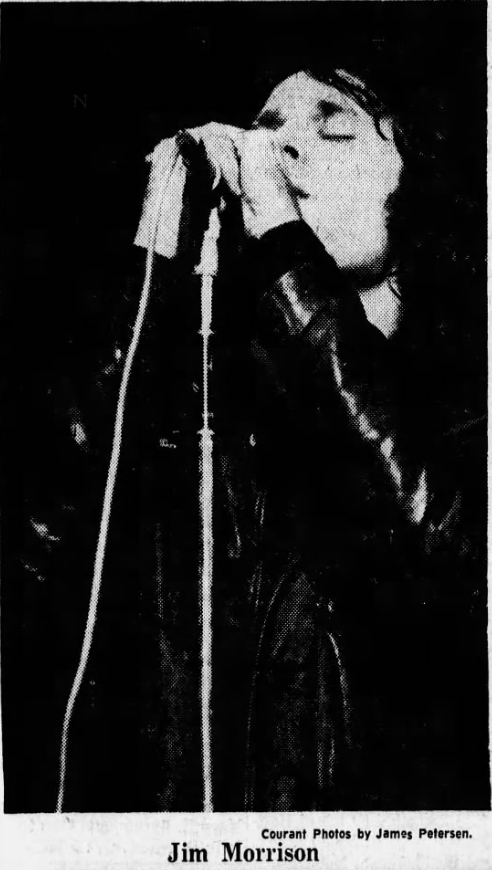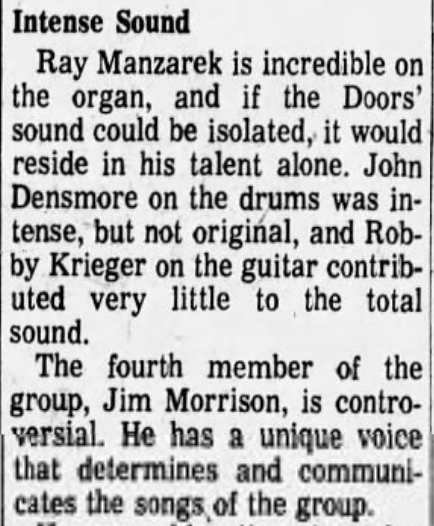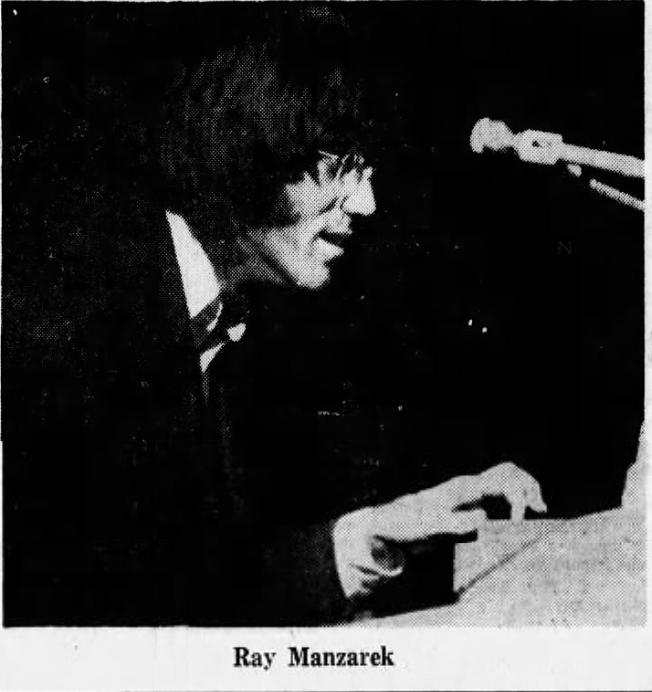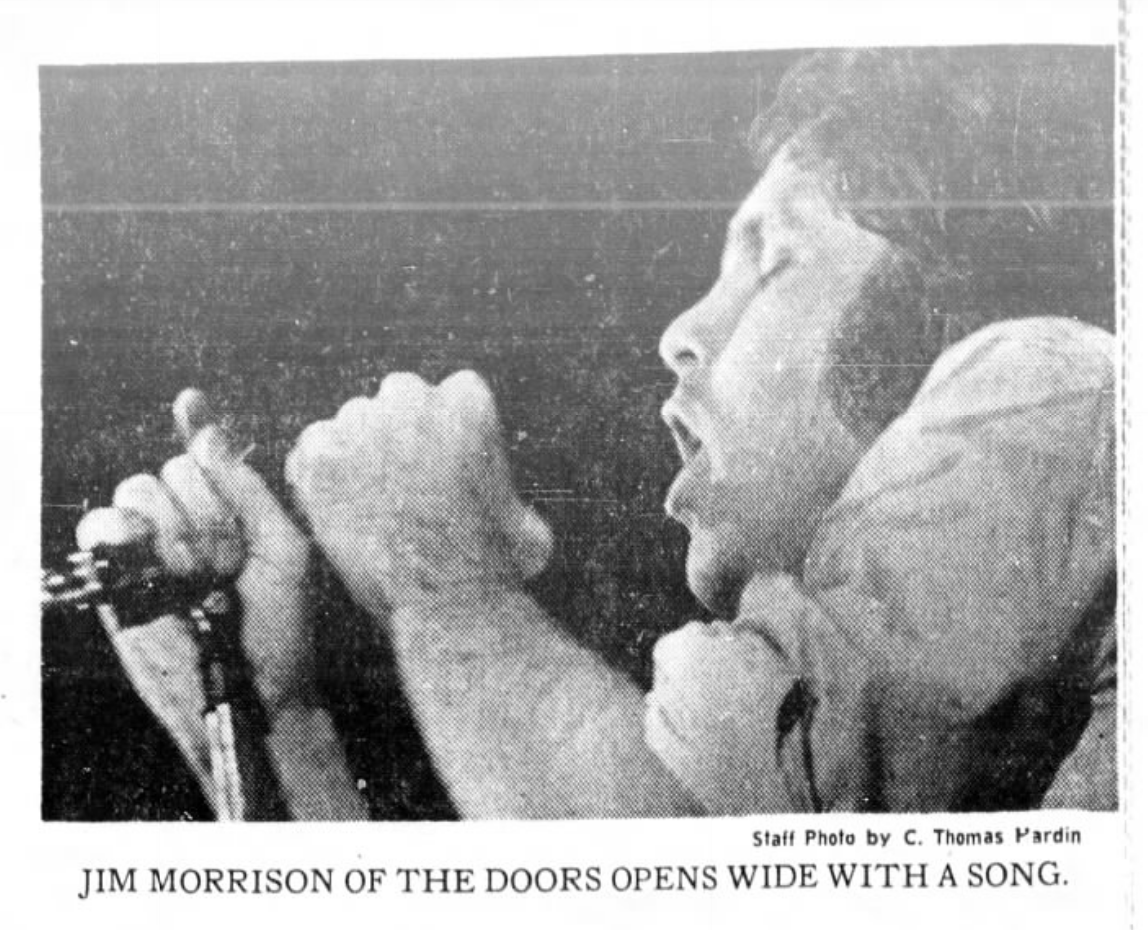“Primitive, Grotesque, and Blatantly Sexual”
Jim Morrison, lead singer of the Doors, Hartford, December 2, 1967
Hartford Courant reporter James Petersen was not a fan of The Doors. In his review, published 55 years ago on December 2, 1967, he centered on then-accepted notion that anything from California was odd and drug-addled. “Beautiful, beautiful” is most certainly a drug reference, his indication of how a high Californian would react to the spectacle of the band and its leather-clad singer.
Harsh criticism of the Doors concert
Rather than declare the Doors bad, Petersen puts his opinion in the mouth of an older “ticket seller,” who he believes would see the band, audience, and performance as “primitive, grotesque, and blatantly sexual.” What the reporter wants the reader in conservative Hartford, Connecticut, to understand is that the Doors and Jim Morrison are dangerous. The coded language is the type the band often faced when looked at by those who represented the establishment or “traditional” values.
In other words, devalue the band and its members as both musicians and people: fear the grotesque and outlaw the sexual.
The drumbeat against the Doors and Morrison picked up pace in late 1969, especially after Morrison was arrested on stage in New Haven just one week later. The entire nation — and the federal government — would turn against the Doors, a slippery slope that would be the catalyst for Morrison’s untimely death just three and a half years later.
The reporter is obviously an organ fan…he loves Ray’s organ!
Surprisingly, the only member of the Doors that the reporter enjoyed was Ray Manzarek’s organ. The irony here is that Ray’s driving sound, ranging from dark and eerie to carnival-like and filled with joy, was the sound of the band. How could they be primitive if he liked their essential sound?
Ray Manzarek — “Keyboardist” of the Doors and mastermind of their unique sound!
When Petersen did opine on where he ranked the Doors versus other bands, he ranked them lower than both Procol Harum and the Paul Butterfield Blues Band.
Read the story of the Doors and the Death Days of the Sixties in Roadhouse Blues, published by Hamilcar Publications! For the holidays, the book has been discounted to $15 when ordered at: https://indiepubs.com/products/roadhouse-blues/












